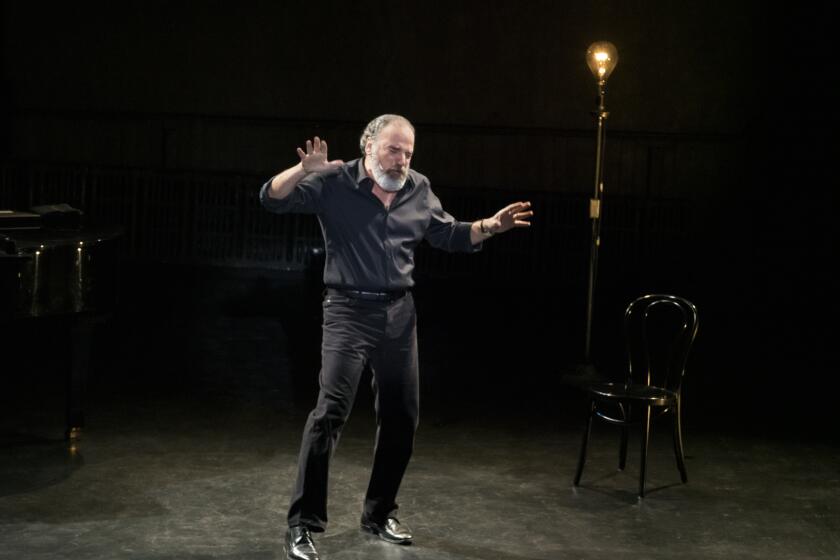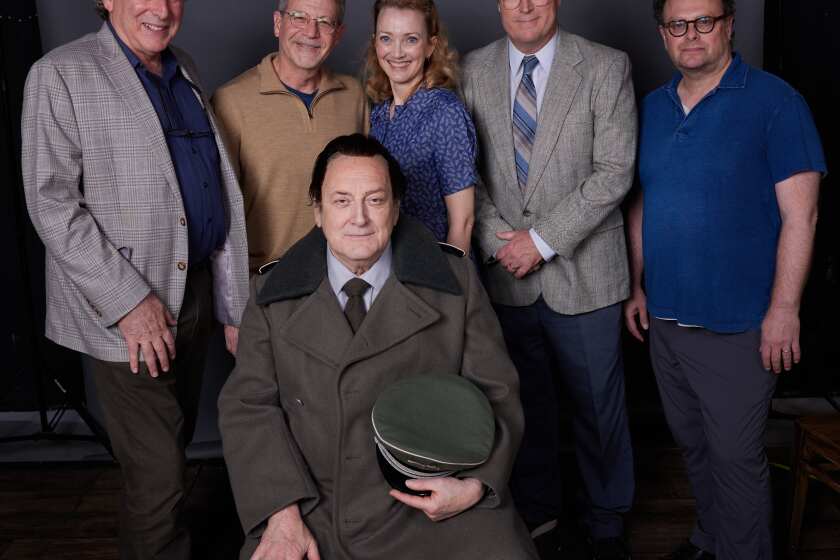‘ACT III’ offers a plan for an engaged retirement in the 21st century
Behind every great nonfiction book is research-based knowledge. And that knowledge is imparted in a way that gives us take-aways — information that is useful to us in our lives. When the book is also eminently readable, that is a bonus.
In “ACT III: Your Anti-Retirement Playbook,” authors Cecilia Williams, Ph.D. and Paula White, CPA, MBA, redefine retirement for the 21st century, referring to that time in our lives instead as ACT III — it being the time of conflict resolution and some of the most exciting action of our lives.
Lots of retirement books are available, and these authors seem to be aware of them all. Most of them focus almost entirely on financial preparedness. “ACT III,” written really for anyone 35 and older, addresses instead the need to stay relevant throughout all the acts in our lives and how particularly to do so during ACT III.
The writers will be speaking from 3-5 p.m. Aug. 8 at Barnes & Noble Grossmont; at 4 p.m. Aug. 9 at Barnes & Noble Oceanside; and from 3-5 p.m. Aug. 15 at Barnes & Noble Encinitas.
Recently Williams and White answered some questions:
What do you see as the traditional definition of retirement?
The traditional definition of retirement is you put up a “Gone fishin’” sign and leave town. Seriously, your retirement day is a ceremony launching you into a role where you are no longer part of the mainstream. You’ve earned your rest. Now you can “spend” your time on puzzles, golfing, traveling. One of the reasons we enjoy these activities now is that they are short pleasurable diversions. Too much leisure can lead to boredom and depression.
What’s wrong with this vision of retirement? Is it still a practical reality?
Today’s 65-year-old is not ready to be put out to pasture. On the practical side, few can afford to retire. More importantly, with life expectancies stretching beyond 100, it is not right to lump the life role of a 65-year-old (in with) that of a 90-year-old.
People either view retirement as something to look forward to or as the beginning of irrelevance. Where are you on this scale? Why?
Personally, we look forward to spending more time on our purpose. For us, that purpose is having all people evolve and share their skills, their wisdom and their gifts for as long as they can without artificial barriers. One should never leave anything; they should always move towards something better.
How must retirement be reconfigured for the 21st century? Why?
Let’s get rid of the word; it does not fit. Today society interprets retirement as being financially secure so that you no longer have to maintain a job in order to live. That’s all it means. ACT III is a stage of life, not a financial condition. As an example, 150 years ago there was no stage of life called adolescence. One went from childhood to adulthood. By recognizing adolescence, options appeared to protect and provide opportunities for this group. We want the same for ACT III. ACT III is composed of people with wisdom, skills, drive, interests and dreams. Each defined by the individual; they are not ready to “pull away.”
What are the biggest retirement myths?
The biggest retirement myth is “55+.” The second half of life cannot be defined by one word. Carrying an AARP card does not mean we are aged. It means we have entered the time of life when we can make choices, given the flexibility created by skills, financial foundation and an acute understanding that now there can be no excuses for not living a life of balance, joy and purpose.
What is the most important aspect of retirement that most people don’t consider until they are retired and experience it?
In traditional retirement, the greatest loss is social connection. Work is no longer a given topic, so now what do you talk about and what binds you to other people?
Is there a better word for retirement in the context of the way we live today?
Yes, ACT III! Only by coming up with a new word can we discuss the complexity that faces this stage of life. It is up to us to determine what that means. We wrote the book to start a groundswell to redefine the stage and eventually redefine society.
So often retirees seem a bit disconnected from the rest of society. In what ways can we stay connected after retirement?
Recognize that we always are part of society. What role do we want to play? Older people in society have traditionally been called upon for their wisdom. Third actors have a voice. It is time people heard it. The power of their voice could help solve the problems of the world.
In what areas do we need to stay current even if we decide to retire? Why?
Simply, all the areas we cover in our book. Technology and relationships are prime. For example, new relationships need to be formed to support our renewed purpose and our inspired interests. We need to understand new technologies to communicate and to stay connected.
When should we begin considering what our ACT III will look like? What three things should be considered 10 years before retirement? Five years before retirement? Twelve months before retirement?
Aside from savings, which should be started early in life, somewhere in your late 40s you should be thinking of your definition of ACT III. The transition is an ongoing process. Your interests and dreams will evolve constantly. At age 40, you need to recognize that you are evolving to your next Act. Just as in ACT II you explored careers, in Act III you should be exploring interests and purpose. What would you like to do next in life? What would you like to accomplish? What would you regret not having done?
What are some of the emotional ramifications we might expect with retirement?
Frustration with ageism. Walk into a computer store and the sales staff will direct you to the “age-appropriate” product. You will get advertisements for hearing aids and senior diapers. Magazines will say they have an article about 55+ and when you read it the subject is about 90-year-olds. After all, we are the same, aren’t we? Shop for clothes lately? Enough said.
What do you suggest to those who retire and then have second thoughts. In fact, how do we avoid having those second thoughts?
Wanting to regain the past can often prevent you from taking advantage of today’s opportunities. Life always offers opportunities. What is in your world today to say “yes” to? Follow your interests. Follow your dreams.
You are co-authors. What was the best part of writing together? What was the most difficult?
We were able to explore our own ACT III and explore changes in our own lives we needed to make. The most difficult part was that in the beginning we did not think we had time to add one more thing to our to-do list, but as we started, time expanded to match our dreams. We marvel at the mysteries of the universe and our lives.
Why did you write “ACT III”? And who do you see as its readers?
We wrote “Act III” as a guidebook, a playbook. We interviewed hundreds of successful retirees to develop our playbook to carefully guide our readers in the development of their ACT III. Who we see as its readers? Anybody facing transition. The older you are, the better it works.
ACT III — how do you define it?
ACT III is the time of your life where you are done with the “have-tos” and the “need tos.” Everything you have done has led you to this point. Now is the time to bring forward the best of your experiences and develop your next act in your life’s story, the most important act.
What are the three most important pieces of advice you have for those planning their ACT III?
See it as a time of evolution, not as a time of decline. Do not pull away; engage in the fullness of life. This is your story, don’t let society write it for you. Be your own playwright.
Antoinette Kuritz and Jared Kuritz are the team behind both Strategies Public Relations and the La Jolla Writer’s Conference (www.lajollawritersconference.com).
Get the RSF Review weekly in your inbox
Latest news from Rancho Santa Fe every Thursday for free
You may occasionally receive promotional content from the Rancho Santa Fe Review.





